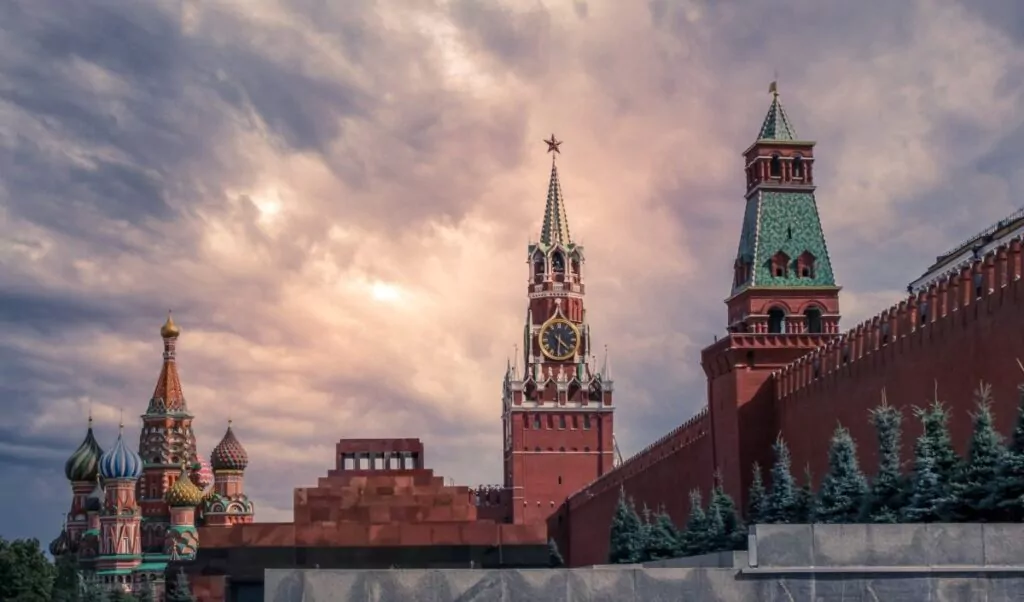Author: Mihai Cistelican [1]
ABSTRACT. A year after the death of author Ion Brad (February 6th 2020), we decided to examine this event as rendered in the press because we had previously studied his work and are thus able to better comprehend the references about him. This present study aims at analyzing all articles written in the Romanian press on the death of Ion Brad, in terms of: how news agencies, news websites, messages of state institutions or the opinions of various authors, writers and other personalities narrated the subject. To this purpose, we have monitored all news in the course of a year since his death. This study can also serve as useful for future editorial projects aiming to examine other personalities in the artistic, political or journalistic environment.
Keywords: death, Ion Brad, authors, press, articles, personalities, culture, news, newspapers, news websites.
1.1.Death of personalities – a constant preoccupation for the public, a subject in which the press always took interest
People have always been fascinated by how certain individuals pass away, especially writers or journalists, and this has been the focus of many cultural personalities and philosophers. If Michel de Montaigne had wanted a register in which to record and comment on the deaths of writers[2], writer François-René Chateaubriand[3] would have wished for a collection containing the last words uttered by different famous people before they passed. In terms of how precious such a piece of news is, this depends on the temporal proximity/how close in time this occurred (the quicker the news on a death is transmitted by the journalist, the more important it is for the public), rarity (birth and death are unique moments in an individual’s life) and the fame of that person. The fascination for the death of celebrities is a constant interest, the volume of Isabelle Bricard of 1995, Dictionary of famous people in face of death, being a living proof. This was translated into Romanian in 2001 by Adriana Liciu and Sorina Urdoi.
Aurel Sasu was eager to mention in his study[4] on how writers pass away that death itself gives them a great significance, in terms of conscience and perception. Following on this, we could say that the death of some of them, as the author of the volume[5] said, was either very sudden (A. E. Baconsky died in the 1977 earthquake, Radu Cioculescu died in prison, Dan Deșliu drowned in the sea, Nicolae Labiș, Titus Popovici and Mihail Sebastian died in road crashes), either surprising (Ion Lotreanu killed himself by hanging, Ion Barbu died from liver cancer following drug consumption) or even expected considering their health problems (Vasile Alecsandri, George Bacovia, Lucian Blaga, Ion Creangă, I. L. Caragiale) etc. As far as Caragiale is concerned, one needs to notice the sad and shocking realization that the Romanians’ reaction was (utter lack of interest) when writer Tudor Arghezi, in an unmistakable manner, gave the news: „They were in a tram, about 50 persons, ladies included. The news on Caragiale’s death would not cause a tremor among them, no voices could be heard, the wagon just moved off out of the stop while newspapers, whose headlines were shouted out loud by gipsy kids, ended up in the hands of just one buyer, that is you. Obviously, I know that Goethe himself died one day and not even a single leaf allowed itself to fall off on his grave. Dust welcomes everyone with an endless indifference, both dead cattle and the bones of someone like Pasteur or Leonardo da Vinci. However, I was expecting a slight shaking movement in my tram companions; I wanted to see them join, at least as little as the gipsy kids selling the newspapers, in our thoughts, those who overly much or overly little, value the deceased Caragiale. Caragiale was non-existent in their minds, 50 of them. He was not present even in their farthest thought. He, who sunk into all of them, chewed them into tiny bits and dipped his pen in their mouths and brains and so lovingly laughed at their expense in order to make them laugh too.”[6] .
1.2.Ion Brad: 8 November 1929 – 6 February 2019
Ion Brad slipped in his bathroom at the end of year 2018, suffering lots of blows in different parts of his body. Concussions made his death a quick one and he passed away surrounded by his family and friends on the 6th of February 2019. To his funeral came prominent cultural personalities, online journalists and literary gazettes representatives making this event an important one in news and articles written in memory of the author.
1.3.Brief biography of the author Ion Brad
Ion Brad was born November 8, 1929, in the village Pănade, Alba County, in a large family of 9 children. He went to primary school in his home village (1936-1940), then studied in Blaj, „Sf. Vasile cel Mare” Highschool (1940-1948), where he lived through all the dramas of World War II, starting with the Legionary Rebellion, , the Vienna diktat, the beggining of the Communism in Romania and the prohibition of the Romanian Church United with Rome, the Greek Catholic Church.
At 17, he made his debut in the magazine Gând tineresc, Alba, with a poem dedicated to his future wife. In 1948, he became student at the Department of Language and Literature in Cluj (second most important in the country, after Bucharest); he graduated in 1952, his thesis being a paper on writer Emil Isac. He made his publihing debut during his first year as a student, a moment in time when he started to attend the literary club of Lupta Ardealului newspaper, in which he published cultural articles; he made his mark and was accepted in the Writers’ Union, whose secretary he was in the period of time 1953-1955. He carried on his collaboration with the trendy newspapers of the time, until 1966: Almanahul literar, Cravata roșie, Luceafărul, Scânteia tineretului, Gazeta literară etc. During his stay in Cluj, he met and became close to most recognized local writers (same happened in Bucharest), who really appreciated him through book dedications: Ion Agârbiceanu (Arhanghelii, 1956: „With love and sincere appreciation to poet Ion Brad, the young singer of the land and fields. 21 June 1959”), Lucian Blaga (the volume Poetry, 1942: „To Ion Brad, with the extremely rare joy of coming across of both a poet and a human being. 23 July, 1954”) or Marin Preda (Risipitorii, 1962: „To I. Brad, a poet from Transylvania, from a narrator from Muntenia, with the most collegial feelings”).
His cultural knowledge, his relations and adherence to the Romanian Communist Party made him eligible for various high level positions in Romania: assistant of the leader of the Department of Culture and Arts of the Central Committee of the Romanian Communist Party; later on vice president of the State Committee of Culture and Arts (1968-1973); ambassador of Romania to Greece (1973-1982); director in the Ministry of Foreign Affairs (1982-1984) and director of Theatre „C. I. Nottara” in Bucharest (1984-1989, until the Romanian Revolution , which brought about the fall of the Communist regime). Up to 1989, along with his activity in the newspapers of the time, he also made his mark as a poet and writer. He published poetry (18 volumes), novels (7 books), a monograph (in memory of Emil Isac), plays (2) and plenty of translations from Greek.
After the fall of the Communist regime, he stepped away from politics and became intensely involved into cultural activities. He published a lot after 2000, books on literary history, diplomacy, religion, cultural personalities, memoirs, interviews and articles in well-known publications: Adevărul literar și artistic, Cultura, etc. After his death in 2019, two more volumes were published: Alte lecturi particulare (sole author) and Ion Brad. Blajul – credinței noastre de căpătâi (anthology by Ion Buzași and Ion Moldovan); also, his family fitted a plaque on the house in which he lived and wrote in the last part of his life.
1.4.Ion Brad, sensitive to the death of other writers
The first article[7] which he published as a recognized journalist was dedicated in memory of Emil Isac, in 1954, at his death. In Făclia, he briefly wrote about his life, this being a starting point in his final study which he would publish in the form of a monograph in 1972[8]. He continued the series by writing the article La un an de la moartea lui Emil Isac (A year after the death of Emil Isac)[9].
Obviously, during his career, he wrote about such events in people’s lives, when a well-known writer ceased to be: poet Marin Sorescu[10], critic and historian Constantin Ciopraga[11], sculptor and writer Ion Vlasiu[12] or Alexandru Căprariu, his fellow colleague[13]. He did not forget about famous Greek poets and diplomats, such as Iannos Kranidiotis[14] (vice Minister for Foreign Affairs in Greece, councillor of prime minister Andreas Papandreou during Cyprus crisis and poet – as per the habit of those times – he also wrote an article when the Romanian communist leader Gheorghe Gheorghiu-Dej died (we need to mention that, at the time, in 1965, Ion Brad was already a respected name in the Romanian literature, press and among Communist officials)[15].
2. Methodology used for studying
We make use of both qualitative and quantitative analysis. Based on the latter, we monitored all articles written about the writer’s death all along the first year after his death.
During our qualitative analysis, we aimed at focusing on the main trends, main ideas and messages present in the relevant articles, especially keen on:
- How did press agencies present the event?
- What did news websites write?
- What messages did Romanian institutions transmit?
- What were the views of various journalists, writers and academicians?
3.1. General findings
We identified a total amount of 51 articles published by news institutions or blogs (due to space limitations, we will only mention those we make comments upon in the below bibliography). Furthermore, 4 press releases were sent by institutions where Brad had been active, such as: Ministry of Culture, Writers’ Union, „Sfântul Vasile cel Mare” Greek-Catholic Episcopacy, Bucharest and „C. I. Nottara” Theatre, Bucharest.
3.2. Individual findings. How news agencies presented the event
Two news agencies published news on the death of writer Ion Brad: Mediafax.ro and News.ro. Initially published as an exclusive by ȘTIRIPESURSE.RO[16] (time of publication: 17:20), the news was taken over by Mediafax[17], which added up an extra piece of information: they talked to the family of the deceased (the news was live on website at 19:22). News.ro published the article in February 8. Both versions offer general information about the writer (place of birth, education, professional and political background, awards, details on his funeral); News.ro specified that, in his capacity as ambassador of Romania to Greece, he was „precursor of what we call these days cultural diplomacy”[18].
3.3. How news websites presented the event
We already mentioned above that the news of the death initially published by ȘTIRIPESURSE.RO was later on taken over by news agencies, news websites and television news programmes. Very keen on the event seemed to be popular newspapers with online editions, which published one or two items of news, and also tabloids or websites of television programmes. Choosing headlines (sometimes a bit over the top, most likely due to insufficient research or insufficient time) such as: Romania in tears! One of the greatest contemporary writers passed away[19], Poet Ion Brad died. Mourning in the literary world[20], Ion Brad, former ambassador of the Socialist Republic of Romania to Athens and former director of Nottara Theatre, died at the age of 89[21] or less elaborate, such as România liberă (Free Romania)[22] or DCNews.ro[23], news websites would inform their readers on the death of Ion Brad by offering them information on who he was, information about his life and details about his funeral. The topic was also present in tabloids and non-stop television websites, being packed with headlines such as: Wowbiz (Romania in mourning! A leader of the Romanian poetry died[24]), Cancan (Poet Ion Brad died on Wednesday, at the age of 89[25]), B1 TV (Mourning in academia! One of the greatest contemporary writers of Romania died – photo[26]) and România TV (A great personality of the Romanian culture passed away[27]). Adevărul stands out in this journalistic context by publishing a second article by Doina Papp, historian of theatre and member of the International Association of Theatre Critics and Union of Actors in Romania (Evenimentul zilei falls into the same category, signed by Ion Cristoiu, which we will comment upon below), who wrote about Ion Brad „he sweetened a bit the beast of censorship even when he was sent in disgrace. He helped me personally to continue doing my job and not losing it in the harsh years of investigation madness.”[28]. Apart from her, Papp mentioned others whom Ion Brad actively supported in their personal lives or for whom he arranged theatre shows: Puia Rebreanu, Liviu Rebreanu, Fănuș Neagu, Ion Băieșu, Nichita Stănescu, Ana Blandiana, Marin Sorescu, Ion Alexandru, Ion Gheorghe, Adrian Păunescu, Dan Micu și Horia Lovinescu.
3.4. Messages sent by the Romanian state institutions
The most remarkable message came from the Ministry of Culture that published a comprehensive press release on the day the following the writer’s death, whom they considered „one of the most prominent personalities of the contemporary culture”[29]. Initially highlighting his professional path, the representatives of the Ministry were eager to talk about the times the author had lived in because he „carried along an unwritten history of the Romanian literature”[30] in a period of time – indirectly referring to the Communism – when he stood under the authority „of the historical time”[31], the values of our people being eternally engraved in his books.
On the other hand, the Writers’ Union of Romania spoke about this event in a much more impersonal way, 5 days after his death, in February the 11th: o brief presentation of his life, published books, drawing attention on the fact that he had been keen on supporting the reintegration into the literary circuit of writers Lucian Blaga and Ion Agârbiceanu.
The church to which Ion Brad belonged and for which he had stood during his life, the Romanian Church United with Rome, considered his as a „son”[32] and offered beside details on the funeral also a message of sympathy to the family of the deceased from His Holiness Mihai, the Greek-Catholic Episcope of Bucharest, and from the entire community. Another community he had supported, Nottara Theatre, released on Facebook a message saying „that the family of the theatre was in mourning!”[33]
3.5. Opinions of journalists, writers and academicians
There were also other personalities who wrote commemorative articles about Ion Brad, such as journalists, professors, academicians, literary critics, well-known or younger writers, all their comments being full of pathos, exciting and emotional, making a true profile of the writer for all time.
The first one to publish an article was Ion Cristoiu, in Evenimentul zilei; he met Ion Brad before 1989, when they collaborated or when Brad helped Cristoiu to publish a book on the censorship of the Romanian state. The author bid farewell to his fellow colleague by publishing an older essay written about the role Ion Brad had had to the support of the Romanian monks on Mount Athos in Greece. As an introduction, he contextualized the moment. Cristoiu mentioned when he had last spoken with and about Brad, then he outlined two relevant ideas about the deceased: his endeavor to help other writers have their books printed (otherwise threatened to be censored, he himself having been in a similar situation) and his perseverance as an ambassador (especially when he had persuaded Nicolae Ceaușescu to assist the Romanian old monks on Mount Athos in Greece), all these missions being successfully accomplished: „What was Ion Brad? A personality of the Romanian culture. This is the only formulation that can fully include a multifaceted and decade-long activity, poems, novels, plays, memoirs, essays, articles. This is also the only formulation to embrace what Ion Brad did for the Romanian culture in his capacity as cultural activist and as ambassador in Athens”[34], Ion Cristoiu ended. The article was also published on Ion Cristoiu’s blog[35] on the following day, but also on a website with changed title, such as Justițiarul[36], however the name of the original author was specified.
Professor Ilie Rad, who wrote two interview books with Ion Brad, also did not write in his article about the volumes of the deceased, instead he mentioned the noble gesture which the poet had made during his life for the recent history of Romania: donation of his own documents, some of which having an autograph from prominent personalities of the Romanian culture (letters, books, manuscripts), to certain libraries (Ilie Rad compares him to literary critic and award winner of the Herder prize, Adrian Marino, who did something similar): „He stands out as the ideal prototype of the kind-hearted and generous writer, modest and without over the top weaknesses, a person fond of nurturing the cult of friendship and who had nothing to hide from his past and activity”[37], concluded Ilie Rad. Former president of the Romanian Academy, Eugen Simion, uses the same tone when he describes him as having been „a Transylvanian poet who completed the things he had to”[38]. On the other hand, his friend, Ion Buzași, insisted on highlighting the role of the „ambassador of Blaj to Bucharest” – as he was labelled by Cardinal Lucian Mureșan – according to the literary critic, the town of schools has always been „from beginning to end, one of the main themes in his writings”[39].
The literary critic also made a „mini biography”, in which – apart from his qualities – he also mentioned the battles which Ion Brad fought during the last part of his life, his endeavour to promote writers in his magazine Acasă, by publishing reviews on their books; this was probably due to the fact that he had been part of a generation going through difficult times (Second World War, the Communism), „a generation that, still young, was no stranger to unrest and division in the Romanian society”[40], and „he wrote frantically despite his disease”[41] – according to younger writer Flaviu Predescu, who visited him a few days before his death; everything he did – according to the president of the Writers’ Uniov – Cluj Branch, Irina Petraș – „he did as a witness feeling obliged in the face of history”[42].
4. Conclusions
The death of a personality has always stirred the interest of the public, while newspapers, televisions and radios present these events comprehensively. As the interest in such subjects is huge and is intently watched, it is no surprise that things were the same when writer, publicist, journalist and diplomat Ion Brad passed away in Bucharest, February 6, 2019, at the age of 89.
His death was not left unnoticed by the mass-media in Romania. As previously mentioned, 51 articles were published by news institutions in Romania (due to space limitations, we will only mention those we make comments upon in the below bibliography). Further 4 press releases were sent by cultural institutions.
The news was presented by news agencies, newspaper websites, online newspapers, tabloids, cultural magazines, television websites.
Online journalists presented the news in the simplest way offering information from Ion Brad’s resume, by bringing into the attention of the public details on his birth place, professional career, published books and information regarding the place and day of his funeral. The rush and frivolity led to some of the information they published being copied from news agencies or websites that first published the news, thus leading to situations in which the headline exaggerated a bit the quality as writer of the deceased.
Among the cultural institutions that expressed their deep sadness were the Ministry of Culture and the Romanian Church United with Rome, while the Writers’ Union of Romania and Nottara Theatre in Bucharest kept a balanced and even cold tone.
Obviously, those who knew Ion Brad and those who were familiar with his work were those who most accurately presented the news and offered relevant information about his personality; they outlined a true portrait of the writer, showing: his origins, his connection to Blaj (things he did in the name of culture, obstacles, support he provided), his role as supporter of the writers, of the monks on Mount Athos and also of the Romanian cultural patrimony by donating his archives to the main libraries in Romania.
Acknowledgements
This work was possible with the financial support of the Operational Programme Human Capital 2014-2020, under the project number POCU 123793 with the title „ Researcher, future entrepreneur - New Generation”. [Această lucrare a fost posibilă prin finanțarea oferită de Programul Operațional Capital Uman 2014-2020, în cadrul proiectului POCU 123793 cu titlul „Cercetător, viitor antreprenor – Noua Generație”].
Bibliography
Books:
Brad, Ion, Emil Isac – An orator of new ideas, Dacia Publishing House, Cluj, 1972 (Romanian language).
Sasu, Aurel, How Romanian writers die, Casa Cărții de Știință Publishing House, Cluj-Napoca, 2017 (Romanian language).
Articles:
Brad, Ion, In honour of the poet, in Făclia, VIII, no. 2286, February 14, 1954, p. 2 (Romanian language).
Brad, Ion, A year after the death of Emil Isac, in Gazeta literară, II, no. 12 (54), March 24, 1955, p. 1 (Romanian language).
Brad, Ion, He who..., in Literatorul, VI, no. 50 (271), December 13-20, 1996, p. 11 (Romanian language).
Brad, Ion, A great scholar, in Convorbiri literare, CXLII (year 142), no. 2 (158), February 2009, p. 58 (Romanian language).
Brad, Ion, Ion Vlasiu, at dusk, in Vatra, 27, nr. 5, mai 1998, p. 43-45 (Romanian language).
Brad, Ion, Non omnis moriar..., in România literară, XXI, no. 7, February 11, 1988, p. 10 (Romanian language).
Brad, Ion, „Successors of Prometeu”, in Diplomat Club, no. 9 (93), 1999, p. 2 (Romanian language).
Brad, Ion, He offered us the youth of his heart, in Scânteia tineretului, XXI, no. 4929, March 22, 1965, p 3 (Romanian language).
Buzași, Ion, A man from Blaj. Farewell to Ion Brad, in România literară, no. 7/2019 (romanialiterara.com/2019/03/un-om-al-blajului/) (Romanian language).
Cistelican, Mihai Writer and diplomat Ion Brad passed away: He was friendly with Lucian Blaga, Ion Agârbiceanu and Adrian Păunescu, February 6, 2019, la 17:20 (stiripesurse.ro/unul-dintre-cei-mai-mari-scriitori-contemporani-ai-romaniei-a-incetat-din-via-a-a-fost-prieten-cu-l_1323998.html) (Romanian language).
Costache, Alina, A prominent personality of the Romanian culture ceased to be, February 06, 2019, at 21:22 (romaniatv.net/s-a-stins-din-viata-o-mare-personalitate-a-culturii-romane_459980.html) (Romanian language).
Cristoiu, Ion, Ion Brad about a less known moment during the Communism: Nicolae Ceaușescu gets involved in rescuing the Romanian monastery Prodromu in Athos!, February 7, 2019 (evz.ro/ion-brad-despre-un-moment-mai-putin-cunoscut-din-comunism.html) (Romanian language).
Cristoiu, Ion, Ion Brad about a less known moment during the Communism: Nicolae Ceaușescu gets involved in rescuing the Romanian monastery Prodromu in Athos!, February 7, 2019 (cristoiublog.ro/gindul-de-vineri-8-februarie-2019/) (Romanian language).
Cristoiu, Ion, Writer and ambassador Ion Brad died, he who had convinced Ceaușescu to get involved in rescuing the Romanian monastery Prodromu in Athos, February 8, 2019 (justitiarul.ro/a-murit-scriitorul-si-ambasadorul-ion-brad-cel-care-l-a-convins-pe-ceausescu-sa-se-implice-in-salvarea-schitului-romanesc-prodromu-de-la-athos/) (Romanian language).
Grancea, Mihaela, At the death and burial of I. L. Caragiale. „Sleep Caragiale, sleep, cute little man, a sleep free of dreams...”, in Historia (historia.ro/sectiune/general/articol/la-moartea-si-inhumarea-lui-i-l-caragiale-dormi-caragiale-dormi-dragutule-somn-fara-vise) (Romanian language).
Ionescu, Lucian, Romania in tears! One of the greatest contemporary writers passed away, February 6, 2019 (evz.ro/ion-brad-mort-romania-scriitor-contemporan.html) (Romanian language).
Mischie, Dana, Ion Brad, former ambassador of the Socialist Republic of Romania to Athens and former director of Nottara Theatre, died at the age of 89, February 8, 2019, at 12:48 (adevarul.ro/cultura/teatru/ion-brad-fost-ambasador-republicii-socialiste-romania-atena-fost-director-teatrului-nottara-murit-varsta-89-ani-1_5c5d5b9bdf52022f758571a4/index.html) (Romanian language).
Papp, Doina, Ion Brad, in memoriam, February 8, 2019, la 11:15 (adevarul.ro/cultura/carti/ion-brad-memoriam-1_5c5d4731df52022f7584baa9/index.html) (Romanian language).
Petraș, Irina, Ion Brad and „the certainty of tradition”, in Steaua, LXX, no. 3 (845), March 2019, p. 16-17 (Romanian language).
Predescu, Flaviu George, Ion Brad (1929-2019), February 6, 2019 (fpredescu.wordpress.com/2019/02/06/ion-brad-1929-2019/) (Romanian language).
Rad, Ilie, Ion Brad, the generous poet, in România literară, no. 9-10/2019 (romanialiterara.com/2019/03/ion-brad-poetul-generos/; article taken over in Ziarulfăclia.ro and Ilierad.ro) (Romanian language).
Râpeanu, Valeriu, Ion Brad: True writer, a man with a great heart , February 11, 2019 (curierulnational.ro/ion-brad-scriitorul-adevarat-omul-cu-sufletul-ales%ef%bb%bf/) (Romanian language).
Scarlat, Răzvan, Poet Ion Brad, died on Wednesday, at the age of 89, February 6, 2019, at 19:22 (cancan.ro/poetul-ion-brad-a-murit-miercuri-la-varsta-de-89-de-ani-19930667) (Romanian language).
Scutaru, Cristina, Writer Ion Brad died, February 6, 2019, at 19:03 (dcnews.ro/poetul-ion-brad-a-murit_635820.html) (Romanian language).
Simion, Eugen, Ion Brad, a Transylvanian poet who completed the things he had to, in Atitudini, April 2019, p. 1 (casadecultura.ro/wpcontent/uploads/pdf/revistaAtitudini/Revista_Atitudini_aprilie_2019.pd) (Romanian language).
Tupa, Răzvan, Poet Ion Brad died on Wednesday, at the age of 89, February 6, 2019 (mediafax.ro/social/poetul-ion-brad-a-murit-miercuri-la-varsta-de-89-de-ani-17866169) (Romanian language).
V. A., Romania in mourning! A leader of the Romanian poetry died, February 6, 2019 (wowbiz.ro/doliu-in-romania-a-murit-un-om-de-baza-al-poeziei-romanesti-20005127) (Romanian language).
***Ion Brad, former director of Nottara Theatre, died at the age of 89, February 8, 2019 (news.ro/cultura-media/ion-brad-fost-director-al-teatrului-nottara-a-murit-la-varsta-de-89-de-ani-1922402808172019021218843738) (Romanian language).
***Poet Ion Brad died. Mourning in the literary world, February 6, 2019, 20:29 (Libertatea.ro/stiri/murit-poetul-ion-brad-doliu-lumea-literaturii-2538312) (Romanian language).
*** Poet Ion Brad died on Wednesday, at the age of 89, February 6, 2019, at 19:45) (Romanialibera.ro/actualitate/poetul-ion-brad-a-murit-miercuri-la-varsta-de-89-de-ani-772068) (Romanian language).
***MOURNING in academia! One of the greatest contemporary writers of Romania died (PHOTO), February 6, 2019, at 17:35 (b1.ro/stiri/eveniment/doliu-in-mediul-academic-unul-dintre-cei-mai-mari-scriitori-contemporani-ai-romaniei-a-murit-foto-261308.html) (Romanian language).
***Farewell, ION BRAD!, Ministry of Culture (cultura.ro/ramas-bun-ion-brad) (Romanian language).
***Writer Ion Brad went to Heavens (1929-2019), by the Romanian Church United with Rome (episcopiabucuresti.ro/a-trecut-la-domnul-scriitorul-ion-brad-1929-2019/) (Romanian language).
*** The Family of Nottara Theatre is in Mourning, by Nottara Theatre, Bucharest (shorturl.at/kCEOU) (Romanian language).
[1] PhD student, College of Political, Administrative and Communication Sciences, “Babeș-Bolyai” University, Cluj-Napoca, Romania, cistelican_mihai@yahoo.com.
[2] Apud Aurel Sasu, How Romanian writers die, Casa Cărții de Știință Publishing House, Cluj-Napoca, 2017, p.11.
[3] Apud ibidem, p.11.
[4] Ibidem, p. 7.
[5] Ibidem, p.11.
[6] Mihaela Grancea, At the death and burial of I. L. Caragiale. „Sleep Caragiale, sleep, cute little man, a sleep free of dreams...”, in Historia (historia.ro/sectiune/general/articol/la-moartea-si-inhumarea-lui-i-l-caragiale-dormi-caragiale-dormi-dragutule-somn-fara-vise, accessed on 20.02.2020, at 12:30).
[7] Ion Brad, In honour of the poet, in Făclia, VIII, no. 2286, February 14, 1954, p. 2.
[8] Ion Brad, Emil Isac – An orator of new ideas, Dacia Publishing House, Cluj, 1972.
[9] Ion Brad, A year after the death of Emil Isac, in Gazeta literară, II, no. 12 (54), March 24, 1955, p. 1.
[10] Ion Brad, He who..., in Literatorul, VI, no. 50 (271), December 13-20, 1996, p. 11.
[11] Ion Brad, A great scholar, in Convorbiri literare, CXLII (year 142), no. 2 (158), February 2009, p. 58.
[12] Ion Brad, Ion Vlasiu, at dusk, in Vatra, 27, no. 5, May 1998, p. 43-45.
[13] Ion Brad, Non omnis moriar..., in România literară, XXI, no. 7, February 11, 1988, p. 10.
[14] Ion Brad, „Successors of Prometeu”, in Diplomat Club, no. 9 (93), 1999, p. 2.
[15] Ion Brad, He offered us the youth of his heart, in Scânteia tineretului, XXI, no. 4929, March 22, 1965, p 3.
[16] Mihai Cistelican, Writer and diplomat Ion Brad passed away: He was friendly with Lucian Blaga, Ion Agârbiceanu and Adrian Păunescu, February 6, 2019, at 17:20 (www.stiripesurse.ro/unul-dintre-cei-mai-mari-scriitori-contemporani-ai-romaniei-a-incetat-din-via-a-a-fost-prieten-cu-l_1323998.html, accessed on 28.02.2020, at 12.10)
[17] Răzvan Tupa, Poet Ion Brad died on Wednesday, at the age of 89, February 6, 2019 (www.mediafax.ro/social/poetul-ion-brad-a-murit-miercuri-la-varsta-de-89-de-ani-17866169, accessed on 28.02.2020, at 12:21).
[18] *** Ion Brad, former director of Nottara Theatre, died at the age of 89, February 8, 2019 (www.news.ro/cultura-media/ion-brad-fost-director-al-teatrului-nottara-a-murit-la-varsta-de-89-de-ani-1922402808172019021218843738, accessed on 28.02.2020, at 12:25).
[19] Lucian Ionescu, Romania in TEARS! One of the greatest contemporary writers PASSED AWAY, February 6, 2019 (evz.ro/ion-brad-mort-romania-scriitor-contemporan.html, accessed on 28.02.2020, at 12:42).
[20] ***Poet Ion Brad died. Mourning in the literary world, February 6, 2019, 20:29 (www.libertatea.ro/stiri/murit-poetul-ion-brad-doliu-lumea-literaturii-2538312, accessed on 28.02.2020, at 12:46).
[21] Dana Mischie, Ion Brad, former ambassador of the Socialist Republic of Romania to Athens and former director of Nottara Theatre, died at the age of 89, February 8, 2019, at 12:48 (adevarul.ro/cultura/teatru/ion-brad-fost-ambasador-republicii-socialiste-romania-atena-fost-director-teatrului-nottara-murit-varsta-89-ani-1_5c5d5b9bdf52022f758571a4/index.html, accessed on 28.02.2020, at 12:47).
[22] *** Poet Ion Brad died on Wednesday, at the age of 89, February 6, 2019, at 19:45 (romanialibera.ro/actualitate/poetul-ion-brad-a-murit-miercuri-la-varsta-de-89-de-ani-772068, accessed on 28.02.2020, at 12:48).
[23] Cristina Scutaru, Writer Ion Brad died, February 6, 2019, at 19:03 (dcnews.ro/poetul-ion-brad-a-murit_635820.html, accessed on 28.02.2020, at 12:48).
[24] A.V., Romania in mourning! A leader of the Romanian poetry died, February 6, 2019 (wowbiz.ro/doliu-in-romania-a-murit-un-om-de-baza-al-poeziei-romanesti-20005127, accessed on 28.02.2020, at 12:54).
[25] Răzvan Scarlat, Poet Ion Brad died on Wednesday, at the age of 89, February 6, 2019, at 19:22 (cancan.ro/poetul-ion-brad-a-murit-miercuri-la-varsta-de-89-de-ani-19930667, accessed on 28.02.2020, at 12:56).
[26] *** MOURNING in academia! One of the greatest contemporary writers of Romania died (PHOTO), February 6, 2019, at 17:35 (b1.ro/stiri/eveniment/doliu-in-mediul-academic-unul-dintre-cei-mai-mari-scriitori-contemporani-ai-romaniei-a-murit-foto-261308.html, accessed on 28.02.2020, at 12:55).
[27] Alina Costache, A great personality of the Romanian culture passed away, February 06, 2019, at 21:22 (romaniatv.net/s-a-stins-din-viata-o-mare-personalitate-a-culturii-romane_459980.html).
[28] Doina Papp, Ion Brad, in memoriam, February 8, 2019, at 11:15 (adevarul.ro/cultura/carti/ion-brad-memoriam-1_5c5d4731df52022f7584baa9/index.html, accessed on 28.02.2020, at 13:15).
[29] *** Farewell, ION BRAD!, in cultura.ro/ramas-bun-ion-brad (accessed on 28.02.2020, at 10:55).
[30] *** Farewell, ION BRAD!, in cultura.ro/ramas-bun-ion-brad (accessed on 28.02.2020, at 10:55).
[31] *** Farewell, ION BRAD!, in cultura.ro/ramas-bun-ion-brad (accessed on 28.02.2020, at 10:55).
[32] *** Writer Ion Brad went to Heavens(1929-2019), (episcopiabucuresti.ro/a-trecut-la-domnul-scriitorul-ion-brad-1929-2019/, accessed on 28.02.2020, at 11:00).
[33] *** The Family of Nottara Theatre is in mourning!, (shorturl.at/kCEOU, accessed on 28.02.2020, at 11:15).
[34] Ion Cristoiu, Ion Brad about a less known moment during the Communism: Nicolae Ceaușescu gets involved in rescuing the Romanian monanstery Prodromu in Athos!, February 7, 2019 (evz.ro/ion-brad-despre-un-moment-mai-putin-cunoscut-din-comunism.html, accessed on 28.01.2020, at 13:34).
[35] Gîndul de vineri, February 8, 2019: Ion Brad about a less known moment during the Communism: Nicolae Ceaușescu gets involved in rescuing the Romanian monastery Prodromu in Athos!, February 07, 2019 (cristoiublog.ro/gindul-de-vineri-8-februarie-2019/, accessed on 28.01.2020, at 13:37).
[36] Ion Cristoiu, Writer and ambassador Ion Brad died, he who convinced Ceaușescu to get involved in rescuing the Romanian monastery Prodromu in Athos, February 8, 2019 (justitiarul.ro/a-murit-scriitorul-si-ambasadorul-ion-brad-cel-care-l-a-convins-pe-ceausescu-sa-se-implice-in-salvarea-schitului-romanesc-prodromu-de-la-athos/, accesat în 28.01.2020, la 14:00).
[37] Ilie Rad, Ion Brad, the generous poet, in România literară, no. 9-10/2019 (romanialiterara.com/2019/03/ion-brad-poetul-generos/, accessed on 29.01.2020, at 15:03; article taken over in Ziarulfăclia.ro and Ilierad.ro).
[38] Eugen Simion, Ion Brad, a Transylvanian poet who completed the things he had to, in Atitudini, April 2019, p. 1 (casadecultura.ro/wp-content/uploads/pdf/revistaAtitudini/Revista_Atitudini_aprilie_2019.pdf, accessed on 01.02.2020, at 13:45).
[39] Ion Buzași, A man from Blaj. Saying farewell to Ion Brad, in România literară, no. 7/2019 (romanialiterara.com/2019/03/un-om-al-blajului/, accessed on 29.01.2020, at 09:30).
[40] Valeriu Râpeanu, Ion Brad: True writer, a man with a great heart , February 11, 2019 (curierulnational.ro/ion-brad-scriitorul-adevarat-omul-cu-sufletul-ales%ef%bb%bf/, accessed on 3.02.2020, at 12:25).
[41] Flaviu George Predescu, Ion Brad (1929-2019), February 6, 2019 (fpredescu.wordpress.com/2019/02/06/ion-brad-1929-2019/, accessed on 28.02.2020, at 15:45).
[42] Irina Petraș, Ion Brad and „the certainty of tradition”, in Steaua, LXX, no. 3 (845), March 2019, p. 16-17.
































Comentează